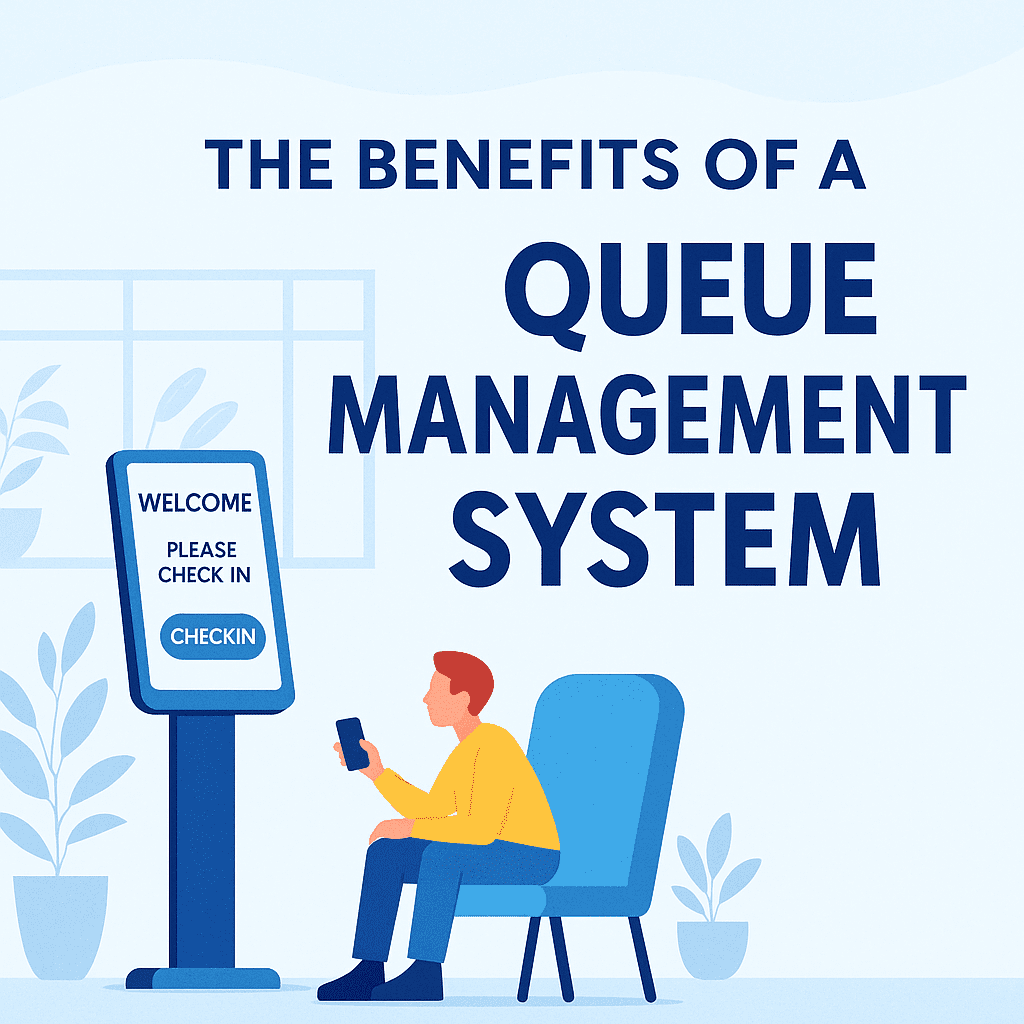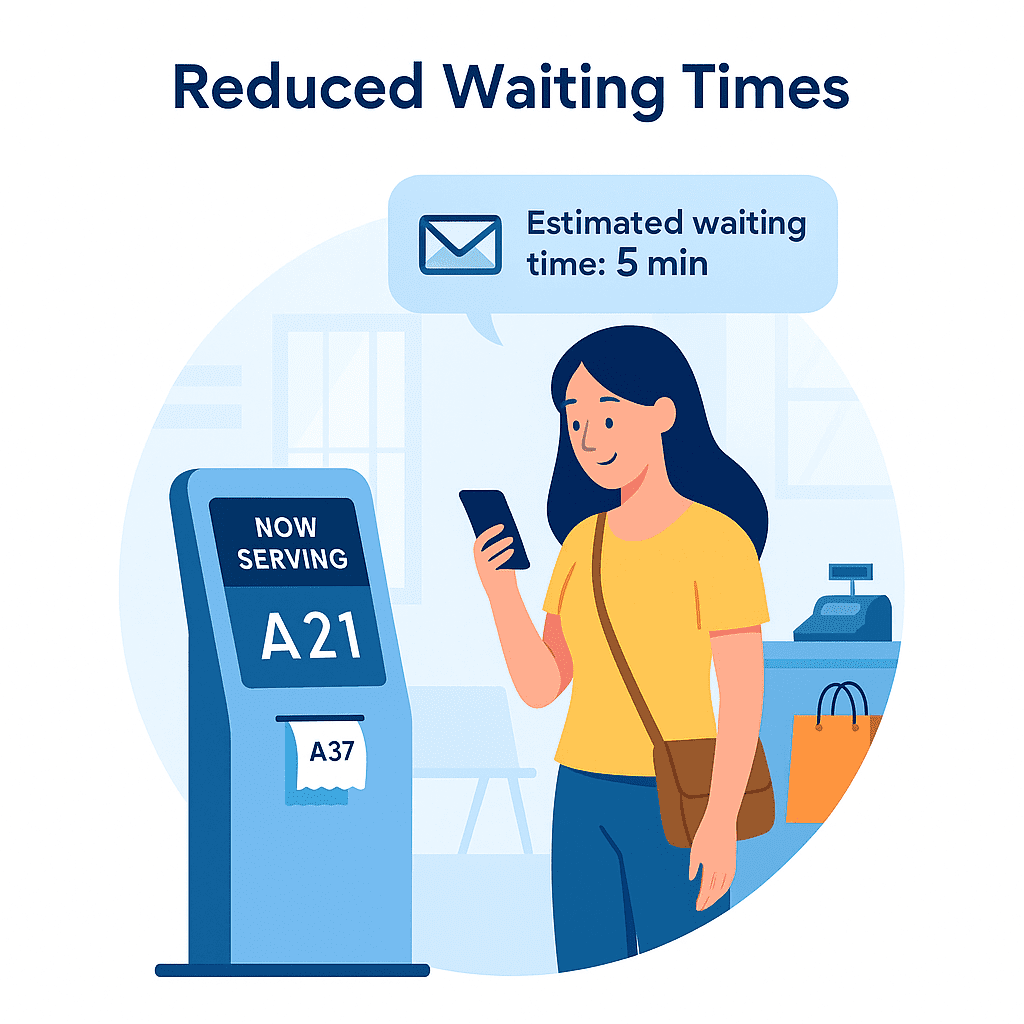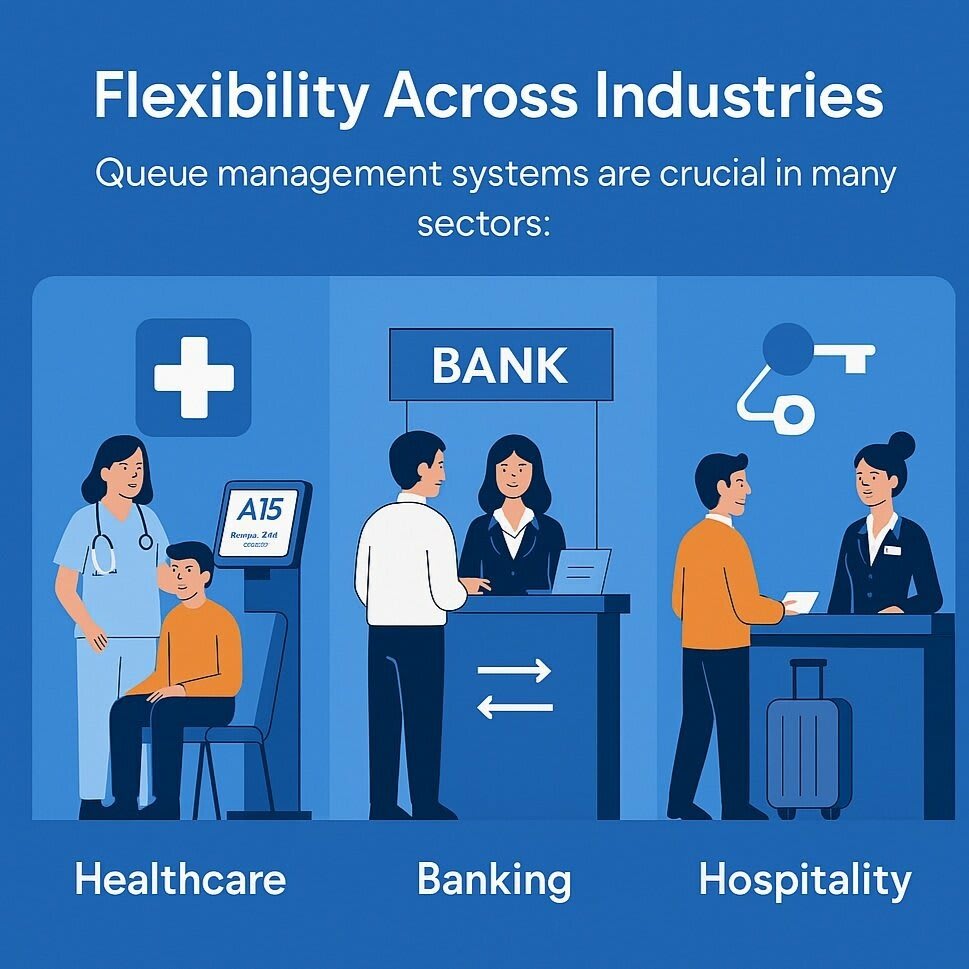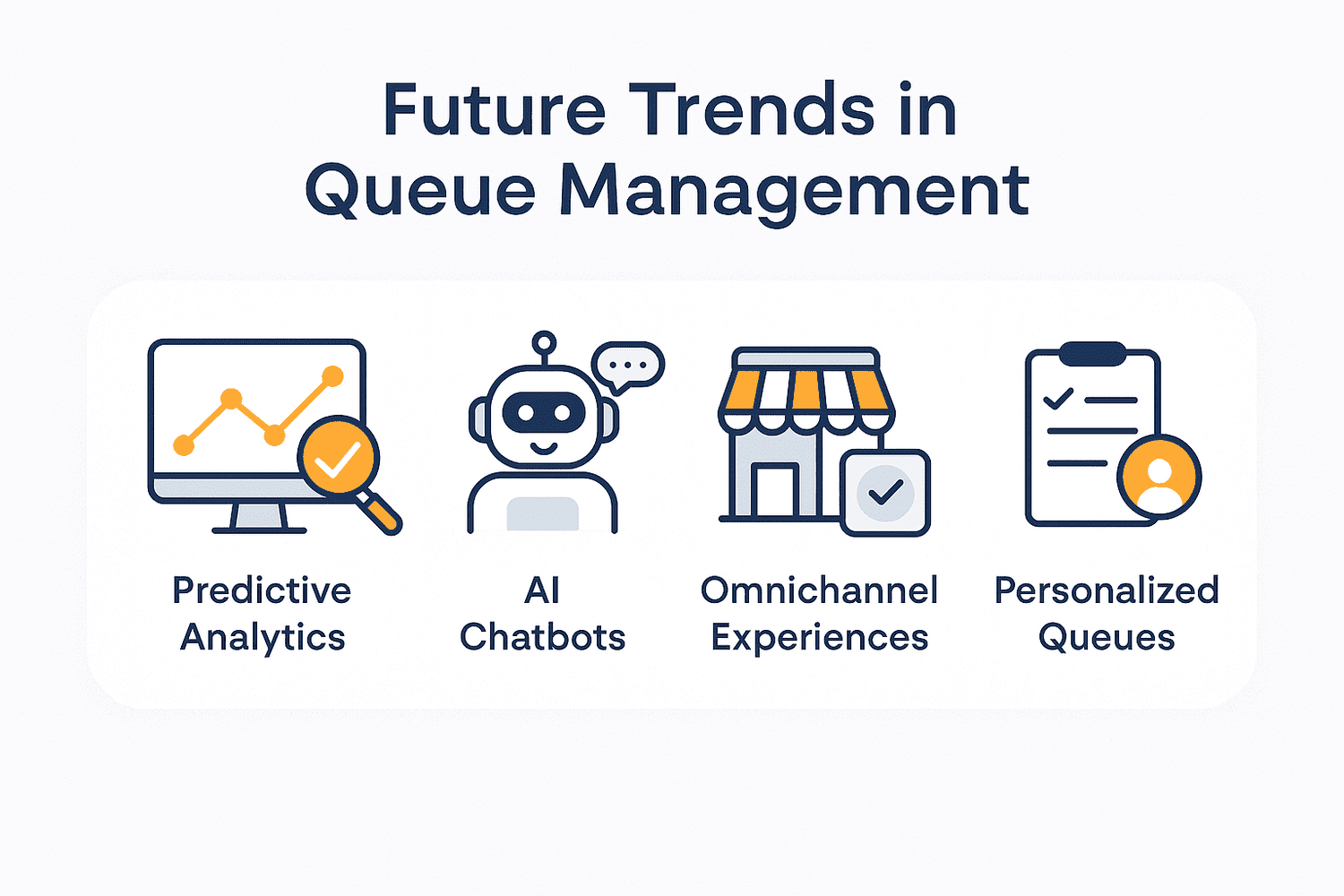Transforming Customer Experience: Key Benefits of a Queue Management System for Business Success

In today's fast-paced, customer-centric world, businesses must continually find new ways to optimize service delivery and enhance customer satisfaction. One of the most effective yet often overlooked solutions is implementing a queue management system. But what are the real benefits of a queue management system, and why should your business invest in one? Let's explore in depth.
For a more complete look at how queue systems reshape customer experience, see our ultimate guide to queue management systems.
What is a Queue Management System?
A queue management system (QMS) is a solution designed to streamline and organize the process of serving customers. It can include physical tools like ticket dispensers or digital tools like mobile apps and virtual queues. At its core, a QMS aims to reduce customer wait times, manage service flow, and improve overall customer experience. Learn more about QueueAway's queue management system to see how it works.
Why Queue Management is Important
Effective queue management isn't just about reducing wait times. It fundamentally transforms how customers perceive and interact with your business. Research shows that 75% of customers find waiting in line frustrating, and long queues can drive over 30% of customers away. A well-implemented QMS enhances operational efficiency and ensures customer loyalty. Read our detailed guide on why queue management matters.
The Core Benefits of a Queue Management System
1. Reduced Waiting Times
The most obvious benefit is drastically reduced waiting times. Smart queue management systems allocate customers efficiently, prioritizing service and minimizing bottlenecks. Digital ticketing systems, SMS alerts, and real-time updates keep customers informed, reducing anxiety and perceived wait times.
Example: In retail, stores like Walmart and Best Buy use QMS technology to minimize checkout times, leading to a 20% increase in customer satisfaction scores.

Reduced Waiting Times with Queue Management System Software – QueueAwayShowcase how queue management software reduces waiting times through digital kiosks and real-time SMS alerts, leading to improved customer satisfaction and operational efficiency.2. Enhanced Customer Experience
Happy customers are repeat customers. By offering transparent wait times, estimated service durations, and the flexibility to wait remotely, businesses make the queuing experience more pleasant and convenient.
Stat: Companies that prioritize customer experience outperform competitors by 60% in terms of profitability (Forbes).
Explore how virtual queuing can further enhance customer satisfaction.
3. Increased Staff Efficiency
A well-organized queue allows staff to focus on providing high-quality service instead of managing frustrated customers. Queue data also helps managers optimize staffing levels based on busy periods, reducing labor costs without sacrificing service quality.
Real-World Application: In banking, institutions like HSBC use digital queue systems to allocate staff dynamically based on real-time demand, improving branch efficiency by 18%.
For a deep dive into how data and software power these efficiencies, explore our data-driven guide to queue management software.
4. Data-Driven Insights
Modern QMS platforms collect a wealth of data: average wait times, peak service hours, customer behavior patterns, and service performance metrics. Businesses can use this data to identify inefficiencies, forecast staffing needs, and plan better layouts or marketing strategies.
Insight: Businesses that leverage customer data achieve 23% higher revenue growth than those that don’t (McKinsey).
Discover how QueueAway's analytics tools can help your business grow.

Data-Driven Insights with Queue Management System Software – QueueAwayThis digital illustration emphasizes how businesses can leverage QueueAway’s analytics tools to track customer behavior, optimize staffing, and boost revenue with smart data-driven strategies.5. Reduced Walkaways and Abandonment Rates
When customers know exactly when they'll be served, they're less likely to abandon queues. A well-communicated queue process reduces frustration, leading to lower abandonment rates and higher revenue capture.
Example: Airports using queue management systems reported a 15% reduction in passenger walkaways.
Want a more lighthearted take on the same problem? Read our humorous look at queue pain.
6. Improved Brand Image and Loyalty
Efficient, customer-friendly queue systems directly impact your brand perception. A smooth queuing experience signals professionalism, customer care, and innovation, building stronger customer relationships and loyalty.
Stat: Brands with superior customer experiences generate 5.7 times more revenue than competitors with poor customer experiences.
7. Flexibility Across Industries
Queue management systems aren't limited to retail. They’re crucial in sectors like healthcare, banking, hospitality, education, and government services.
Industry Examples:
Healthcare: Reduces overcrowding in clinics and improves patient satisfaction.
Banking: Prioritizes service for appointments, walk-ins, and special services.
Hospitality: Enhances guest check-in and check-out experiences.
Explore how queue systems in retail are uniquely improving both customer satisfaction and staff efficiency.

Flexibility Across Industries with Queue Management System Software – QueueAwayThis infographic highlights how queue management systems benefit multiple industries, including healthcare, banking, and hospitality, by improving service flow and customer satisfaction.How a Queue Management System Works
Ticket Issuance: Customers receive digital or physical tickets.
Virtual Queuing: Customers can join queues remotely via an app.
Queue Monitoring: Customers track their place and expected wait time.
Notifications: Real-time alerts update customers when it's nearly their turn.
Feedback Collection: Many systems gather instant feedback to improve service.
Learn how QueueAway's platform powers efficient queuing.
Technologies Behind Modern Queue Management Systems
Mobile Apps for virtual queuing.
AI & Machine Learning to predict busy periods and allocate resources.
Digital Signage displaying queue updates.
CRM Integrations to link customer data with queue history.
IoT Devices like smart kiosks and sensors for tracking.
Future Trends in Queue Management
Predictive Analytics: Using historical data to predict customer flow.
AI Chatbots: Managing virtual queues and customer inquiries.
Omnichannel Experiences: Integrating online booking with in-person visits.
Personalized Queues: Tailoring waiting experiences based on customer profiles.

Future Trends in Queue Management System Software – QueueAwayThis infographic showcases upcoming trends in queue management, including predictive analytics, AI chatbots, omnichannel experiences, and personalized queues, positioning QueueAway at the forefront of innovation.FAQs: Benefits of Queue Management Systems
Q: What types of businesses need a queue management system? A: Any customer-facing business, including retail, healthcare, banking, education, hospitality, and government services.
Q: Is a queue management system expensive? A: Solutions range from affordable digital apps to comprehensive enterprise systems. Many businesses see ROI through improved customer retention and operational efficiency.
Q: Can small businesses benefit from a QMS? A: Absolutely. Even a simple system can drastically improve customer satisfaction and loyalty for small operations.
Q: Does a QMS only work for physical queues? A: No. Modern systems support virtual and hybrid queuing models as well.
Conclusion: Why Your Business Should Invest in a Queue Management System
A queue management system is no longer just a “nice-to-have” tool — it's an essential part of modern customer experience strategy. The benefits of a queue management system span reduced wait times, improved customer satisfaction, operational efficiency, and long-term profitability. Whether you operate a retail store, a hospital, a government office, or a hotel, the right QMS can transform your customer interactions and drive sustainable business success.
To dive deeper into how queue management supports long-term business success, check out this comprehensive guide.
Ready to enhance your customer experience and boost your business success? Explore the QueueAway solution today and revolutionize your queue management!
Learn more about modern queue management systems at QueueAway.co.uk.

